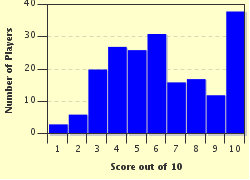Quiz Answer Key and Fun Facts
1. The English word "compline" is derived from a Latin word. Which of the following is its source?
2. Historical liturgists are not of one mind as to the origins of compline. There is some evidence of something like compline as early as the late 4th century in the Eastern Church. Who is considered the early-6th-century originator of compline in the West?
3. In the normal monastic scheme, when is compline prayed?
4. The canticle most commonly associated with compline is the "Nunc dimittis" which begins "Now, Lord, letteth thou thy servant depart in peace ..." This is a quotation from Luke 2:29-32. Who is being quoted?
5. All of the various daily offices included psalms, short readings from Holy Scripture, hymns and fixed prayers. What were the building blocks, the core of the offices, around which all the rest was structured?
6. A sentence of scripture (1 Peter 5:8-9) is commonly read aloud in many versions of compline, especially the more traditional ones. Complete this line from Saint Peter's epistle in the King James Version: "Brethren, be sober, be vigilant; because your adversary the devil, as a __________________, walketh about, seeking whom he may devour: whom resist, steadfast in the faith."
7. In the traditional Western order of daily offices, where does compline fit?
8. In many monasteries (and on retreats based on the Rule of Saint Benedict), the Great Silence immediately follows the end of compline. What is the Great Silence?
9. In Eastern Orthodox practice, there are two sorts of compline -- called Great Compline and Small Compline -- which differ significantly.
10. Compline was prayed regularly in England until the 16th century. What happened to compline, as a consequence of the English Reformation?
Source: Author
FatherSteve
This quiz was reviewed by FunTrivia editor
CellarDoor before going online.
Any errors found in FunTrivia content are routinely corrected through our feedback system.

